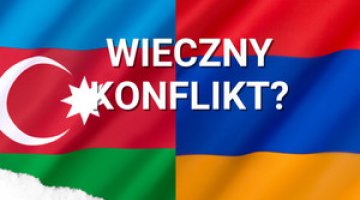Armenia: the government attacks the oligarch Tsarukyan
On 16 June, at the request of the General Prosecutor’s Office, the Armenian parliament deprived the oligarch and leader of the opposing party Prosperous Armenia, Gagik Tsarukyan, of his immunity and agreed to his arrest. The allegations against him include financial and tax fraud and the buying of votes in the 2017 parliamentary elections. The steps taken are part of the fight against corruption and abuse of power proclaimed by Prime Minister Nikol Pashinyan; however, the votes took place after the oligarch’s statements in which he strongly criticised the head of government and his cabinet, which raises suspicions that there are political motives behind the actions of the prosecutor and the parliamentary majority. Nevertheless, it seems that the goal of the ‘Tsarukyan operation’ – there is no doubt that the prime minister was the driving force behind it – is to mobilise the Armenian public in a situation of fatigue with the ruling team, which has been losing its internal coherence (more than two years have passed since Pashinyan’s revolution), and the protracted pandemic (Armenia has the highest number of infections and deaths in the region). The arrest of the oligarch may further consolidate the opposition and activate the support base i.a. around the Republican Party of Armenia, which is opposed to the current elite. There will be no real threat to the authorities over the next few weeks, but if the pandemic situation does not improve, and its economic effects strike larger groups of the population more seriously, a wave of anti-government protests can be expected in the autumn.
The end of the ‘untouchability for loyalty’ pact?
Believed to be Armenia’s richest man, Tsarukyan became involved in politics at the beginning of the previous decade in order to protect his interests. As the head of a political party and a parliamentary deputy, he was able to approach the government as a partner who could influence the legislative process. In the previous term he cooperated with the Republican Party of Armenia, although in the more remote past he had managed to distance himself from it; however, in the decisive phase of the 2018 revolution he supported Pashinyan, and contributed to his election as prime minister. After the last election (in December 2018), which brought Prosperous Armenia 25 seats in the 132-member National Assembly (Pashinyan’s coalition won 88 seats), Tsarukyan assumed the position of a loyal oppositionist. Over time, he began to speak more critically about the authorities, and at the beginning of June this year he openly attacked the government, accusing it of incompetence, and in particular of neglect during the first phase of the fight against the pandemic, and demanding the replacement of the entire cabinet. It is possible that he already knew about the approaching confrontation with the authorities, and that this was his way of discrediting them.
On 14 June, National Security Service (NSS) officers searched Tsarukyan’s residence and questioned him for the first time. The oligarch was accused of machinations, as a result of which the state budget lost about US$60 million (Tsarukyan maintains that he has transferred the management of his Multi Group Concern holding to other persons, and is thus not responsible for its current operations, which is why he considers the attack to be politically motivated), as well as the illegal acquisition of land, and of buying votes before the parliamentary elections in April 2017. On the day of the votes in parliament (the deputies of Prosperous Armenia and of the third group in the chamber did not participate), Tsarukyan was summoned to another interrogation.
As people in the prime minister’s circle have suggested, if the allegations are proven the oligarch may lose some of his property, in accordance with the provisions of the respective law, passed this April. It allows for the confiscation of illegally accumulated assets valued at over US$100,000. For now, Tsarukyan has not been formally arrested yet; it is possible that the court will only decide to confiscate his passport, although the oligarch has not left the country in recent times. The actions the government has taken are intended to demonstrate that the prosecution of corruption and abuses by people in power is still a top priority for Pashinyan’s team, and that in post-revolutionary Armenia everyone is equal before the law and that no-one is untouchable. In recent months, charges of various types and degrees have been brought against people including the former president Robert Kocharyan, who is awaiting trial in custody, as well as close relatives of another former president, Serzh Sargsyan.
The revolution devours its own children
The Tsarukyan case, which has aroused great emotions in Armenia, has coincided – perhaps not by chance – with a series of personnel changes in high positions, especially within the institutions of force. These have i.a. included the Director of the NSS, the Chief of the General Staff of the Armed Forces and the chief of police. The officers dismissed had already been appointed by Pashinyan. In the cases of the National Security Service and the police, these are further replacements to have been made since the revolution; this may be evidence that the internal cohesion of the power camp is weakening, and has even partially disintegrated (in recent weeks a group of officials in the government resigned in disappointment at what they saw as the slow pace of reforms). In this situation, bringing charges against Tsarukyan would mobilise the voters, convince them that the ideals of the revolution still apply, and provide media ‘cover’ for the personnel reshuffles. The government needs this kind of mobilisation, all the more so because the already visible and natural fatigue of the public at the team which has been in charge for the last two years is being overlaid by widespread anxiety associated with the pandemic, as well as the country’s rising socio-economic difficulties, for which the government is increasingly being blamed.
The epidemic has affected Armenia more than neighbouring Georgia and Azerbaijan. On 17 June, the number of infected exceeded 18,000, and there have been over 300 fatalities (in addition, almost 100 more of the infected have died of comorbidities). In Georgia fewer than 890 have been infected, with only 14 fatalities, while in Azerbaijan over 10,600 have been infected, with 126 fatalities (for comparison, Armenia has almost 3 million inhabitants, Georgia 3.7 million, and Azerbaijan over 10 million). Despite the partial lifting of the restrictions (the general opinion is that maintaining them any longer would bring about the total collapse of the economy), the state of emergency has been extended until mid-July. This circumstance reduces the risk of protests by the oligarch’s supporters, which may also have been part of the authorities’ calculations. Currently, all demonstrations are illegal (in addition, there is a strict requirement to maintain social distancing in public spaces), and in the summer months, political activity on the streets practically dies out anyway due to the high temperatures. However, spontaneous demonstrations have taken place: on 14 June, police detained over 250 people who demonstrated in Tsarukyan’s defence, and over 100 were arrested on 16 June (the protest continued through the night).
Conclusions
At present, the actions directed against Tsarukyan cannot really be considered illegal, or as presenting a threat to democracy in Armenia. Due to the gravity of the charges, even arresting him would not constitute such a step; there is no guarantee that he would be convicted. At the same time Pashinyan is treating this case instrumentally, using it to mobilise the public by demonstrating to the voters that the course of reforms remains unchanged, and in this way strengthening his own position. Figuratively speaking, in the absence of any symbolic ‘bread’ (thanks to the economic difficulties caused by the pandemic), the allegations against the oligarch represent a kind of ‘circus’. The course of Tsarukyan’s trial will test the authorities’ intentions, as will the trials of the other politicians, and above all their transparency.
The situation in Armenia is stable, although this does not exclude social shocks in the autumn months. These may occur especially if living conditions deteriorate significantly (unemployment, high prices), and to a lesser extent if there is public agitation by the opposition; that would be more likely if the forces opposed to Pashinyan, including two former presidents and the judiciary, can consolidate. Another threat to the government would be a possible split in the elite, although currently this is unlikely. The only move in this direction so far has been made by the NSS’s former director Artur Vanetsyan, who was already a ‘Pashinyanist’ but was dismissed in autumn 2019; at the end of May he founded the Homeland party, and is currently defending Tsarukyan.
The situation in Armenia and Pashinyan’s own position may also be tested by external factors, primarily Russia’s actions (for example, if it chose to raise gas prices), or the deterioration of the situation on the Nagorno-Karabakh frontline. It does not seem that Moscow will come to Tsarukyan’s defence; however, it should be remembered that PM Pashinyan does not enjoy Russia’s full confidence, and if the Kremlin considers that its interests are at risk, it is possible that it will switch its support to the current opposition.





